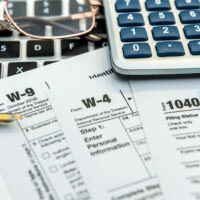
Triple Net (NNN) lease – Pros and cons, and how to find NNN properties for sale
Those who work in commercial real estate know that the triple net lease or, commonly called, NNN lease is only becoming popular by the day. Despite the popularity, the NNN lease is still frequently misunderstood by many commercial real estate professionals, and of course, the general public. So, let’s better understand the triple net lease, its pros and cons, and look at how to find NNN properties for sales. What is a triple net lease? A triple net lease or an NNN lease is a type of lease agreement in which the tenant agrees to pay for all operating expenses associated with a property and the rent cost. Each “N,” or “net” in triple net designates one operating expense category that the tenant is responsible for. The operating expenses of commercial properties include real estate taxes, building insurance, and maintenance. To understand more clearly, in a single net lease agreement, the tenant agrees to pay for one of the above expenses. Likewise, in a double net lease agreement, the tenant agrees to pay for two of these expenses. So, a triple net lease agreement means that the tenant is responsible for all three property expenses. NNN lease pros and cons Pros A triple net lease can be beneficial for both owners and tenants.
Read More. 














